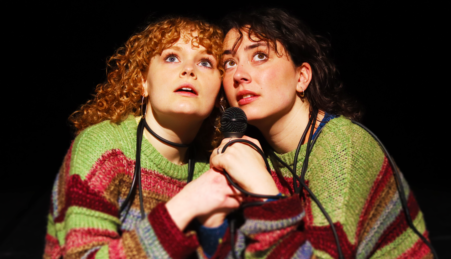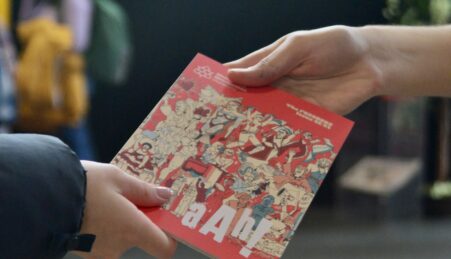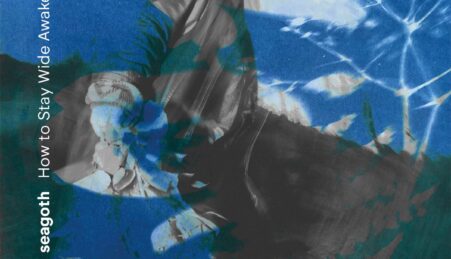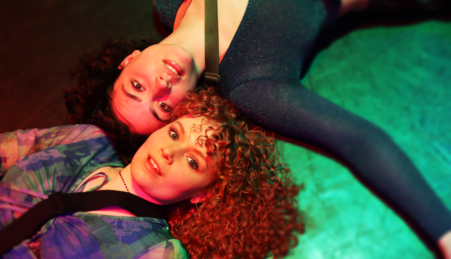
Humanity Hallows Issue 4 Out Now!
Pick up your copy on campus or read online.
By Jacqueline Grima
Following on from last year’s huge success, Manchester Writing School and Comma Press hosted the second National Creative Writing Graduate Fair last week. The event, sponsored by the Arts Council, was open to both creative writing graduates and students.
The event began with a keynote speech by writer and author of My Name is Leon Kit de Waal, who focussed on the concept of ‘writing as the other’. Kit told the audience, “What I mean when we write about the other is when we write about an experience that is not our own. This is a grey area, there isn’t any right or wrong.”
Kit talked about the challenges of writing about something that we haven’t experienced, referring to the process as a kind of ‘trespass’. She said, “As soon as we step out of our own story, we are going to trespass but we have to to be writers.” She went on to discuss the importance of careful research when writing as another, particularly in the area of race or culture, saying, “That is an area where there is a lot of sensitivity about writing as the other.”
Asked by Humanity Hallows about the importance of events such as the National Creative Writing Graduate Fair, Kit said, “These events are massively important. It’s so important to have something that is local and outside of London that sees agents coming out of the city to talk to writers. There should be more of these events and I’m more than happy to support them.”
After Kit’s speech, students and graduates had the opportunity to attend a series of panel sessions hosted by established writers and professionals from the literary industry. One panel, looking at Digital and Self-Publishing, featured Digital Literature academic Dr Lyle Skains, Senior Editor of online magazine The Forge Valerie O’Riordan and successful self-published author Tracy Bloom, who pulled out of a traditional publishing deal to self-publish. Issues discussed in the session included the misconceptions surrounding digital and self-publishing and the impact the rise in self-publishing has had on the industry. Talking about her AHRC funded Reading Digital Fiction Project, Dr Skains said, “We’re looking at what it means to writers to create new and experimental works. We now have a new avenue for storytelling that can be fun and entertaining.”
Another panel session focussed on ‘Changing the Climate’ of publishing. Chaired by Manchester Writing School Lecturer and Costa First Novel Award winner Andrew Michael Hurley, the session featured Nathan Connolly of Dead Ink Books, Freelance Editor Michael Rowley and Will Mackie of New Writing North. Talking about the future of publishing, Will said, “I’d like there to be more access to the industry for people from all walks of life.”
Much of the session focussed on the vast array of publishing options open to writers in today’s industry. Will said, “What we have now are a lot of options for new writers which is really good but it also means that writers have to be more savvy about managing their career.”
Talking about the crowdfunding process used by Dead Ink, Nathan added, “We wanted readers to realise their role in being able to support a new author.”
Other panel sessions focussed on ‘Motivation, Self-Critique and Promotion’ and the importance of ‘Creating a Presence in Public and Online’.
In the afternoon, guests had the opportunity to take part in a series of fun and interactive workshops that focussed on helping emerging writers understand various aspects of the literary industry. In one session, entitled ‘Perfecting Your Elevator Pitch’, Editor of the Writers and Artists’ Yearbook Alysoun Owen talked about the dos and don’ts of submitting to literary agents, looking at examples of good and not-so-good cover letters. She said, “You need to give me enough flavour and enough fact to make me feel engaged an enticed by your story.” She added, “Don’t draw attention to yourself in negative ways.”
In ‘Blogging, Vlogging and Digital Content’, novelist and prolific blogger Elizabeth Baines talked about the best ways to create an online presence. She said, “Blogging is the place on the internet for writers, it’s the natural home. It’s very important for writers to have a digital presence.” She added, “Small publishers need you to do it, big publishers expect you to do it.”
Other sessions included ‘The Writing Life’ with Andrew Michael Hurley and poet Monique Roffey and a fun look at the challenges of Open Mic performance with host of Bad Language and reigning champion of Literary Death Match Manchester Fat Roland.
Students and graduates also had the unique chance to pitch their work to industry professionals at the event in a number of one-to-one pitching sessions. Speaking to Humanity Hallows about the opportunities the day brought, Creative Writing MA student Georgia Davis said, “Knowing and understanding the next steps, once your novel is complete, can be a challenge. This Graduate Fair has straightened out a lot of those doubts for me, with sessions on pitching and promotion, as well as getting the chance to actually pitch, helping enormously.”
For more information about the National Creative Writing Graduate Fair, visit the Comma Press website or follow the fair on Twitter #NCWGradFair






Leave a reply